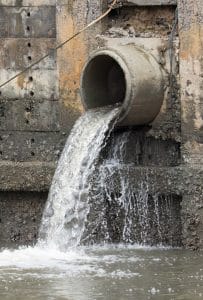How Do I Become an Industrial Stormwater Inspector: A Comprehensive Guide
Intro
Are you interested in playing a crucial role in protecting water quality and public health by becoming an industrial stormwater inspector? This career path offers the opportunity to ensure industries comply with environmental regulations, helping to prevent industrial stormwater pollution. If you’re wondering, “How do I become an industrial stormwater inspector?” and looking for industrial stormwater training, you’ve come to the right place. This comprehensive guide will walk you through the steps necessary to embark on this rewarding career.
Understanding the Role of an Industrial Stormwater Inspector
Industrial stormwater inspectors play a pivotal role in safeguarding our waterways from pollution caused by industrial activities. These dedicated professionals engage in meticulous site evaluations, scrutinizing industrial facilities’ adherence to stormwater regulations tailored to their specific state, such as the California industrial stormwater permit or the FDEP industrial stormwater permit. Their duties extend to examining stormwater pollution prevention plans, ensuring they are not only in place but effectively implemented to curb the discharge of pollutants into the environment.
By conducting thorough inspections and enforcing compliance, industrial stormwater inspectors are instrumental in reducing the instances of industrial stormwater violations and the consequential fines. This vigilance is crucial for mitigating the introduction of hazardous substances into aquatic ecosystems, thus preserving water quality and protecting both public health and the environment.
The role demands a keen eye for detail and a comprehensive understanding of the complex interplay between industrial operations and environmental protection measures. Inspectors must navigate through the nuances of various permits, such as the Washington industrial stormwater permit, requiring a deep dive into specific regulations and standards set forth by each jurisdiction. Their work not only involves identifying non-compliance but also collaborating with facilities to guide them towards meeting regulatory requirements, demonstrating the balance between enforcement and education in this critical field.
Educational Requirements and Skills Needed
Embarking on a career as an industrial stormwater inspector typically necessitates a solid educational foundation. Prospective inspectors often start with a bachelor’s degree in a pertinent discipline such as environmental science, civil engineering, chemistry, or hydrology. These fields provide the critical groundwork for understanding the scientific principles and regulatory frameworks that underpin stormwater management and environmental protection.
Beyond formal education, certain competencies are crucial for success in this role. An in-depth knowledge of water quality issues, including familiarity with contaminants and their potential impacts on ecosystems, is essential. Equally important is an understanding of the regulatory landscape, including familiarity with various permits and compliance requirements specific to different states or regions, such as those mandated under the California Industrial Stormwater Permit or the FDEP Industrial Stormwater Permit.
Skills in communication are vital, as inspectors must effectively convey findings, provide guidance to industrial facilities on compliance issues, and sometimes mediate between stakeholders with varying interests. Analytical skills are also key for assessing complex data and site conditions, while observational skills help in detecting non-compliance and understanding practical applications of stormwater pollution prevention plans.
In this evolving field, adaptability and a willingness to engage in continuous learning through professional development opportunities can further enhance an inspector’s capabilities. As regulations and technologies advance, staying abreast of new developments through workshops, webinars, and additional training becomes indispensable for maintaining effectiveness and relevance in the role.
Gaining Relevant Experience
Building a solid foundation of relevant experience is crucial for aspiring industrial stormwater inspectors. Engaging in roles that offer exposure to environmental compliance, monitoring, or water quality initiatives can significantly bolster one’s qualifications for this career path. To gain such experience, seeking out internships or volunteer opportunities with organizations or agencies focused on environmental protection is a strategic move.
These positions often provide practical experience in conducting fieldwork, analyzing environmental data, and understanding regulatory frameworks—skills directly applicable to the duties of an industrial stormwater inspector.
Obtaining Necessary Certifications and Training
The Stormwater Training Center offers the training and certification necessary to become a Qualified Industrial Stormwater Inspector.
To become a Qualified Industrial Stormwater Inspector you need to learn all the crucial elements that will fall under your duties as an inspector. Personnel who take this course are typically responsible for:
- Stormwater Permitting framework
- Industrial Stormwater Discharge Permit requirements
- Stormwater Pollution Prevention Plan (SWPPP) Development
- Source identification
- Structural and Nonstructural Controls
- Record keeping & reporting
- Natural disaster preparedness
During this course, participants will learn to:
- Conduct routine and comprehensive inspections
- Develop and implement an employee training program
- Write and submit an annual report summarizing inspections, problems, and changes to the plan
- Understand Significant Material Inventory and Storage Practices
- Monitor hazardous materials and implement the Spill Prevention Control & Countermeasure (SPCC) Plan
- Develop and implement an employee maintenance plan
- Implement recycling measures
- Earn .7 CEU’s
Applying for Industrial Stormwater Inspector Positions
Once you’ve acquired the requisite education, accumulated valuable experience, and secured the necessary certifications, your next step is to actively pursue positions as an industrial stormwater inspector. The job market for this profession spans a diverse array of settings, from governmental environmental departments to private sector consulting firms, and even within large industrial companies themselves.
Networking plays a crucial role in uncovering job opportunities. Engage with professional associations, attend industry conferences, and participate in relevant online forums to connect with potential employers and learn about job openings. Social media platforms, particularly LinkedIn, can also be effective tools for networking with industry professionals and discovering job listings.
When applying for positions, tailor your application materials to meet the job description’s requirements. Emphasize your hands-on experience, particularly any direct involvement with industrial stormwater compliance, inspection procedures, and familiarity with regulatory requirements. Highlighting your ability to navigate the complex regulatory environment, manage relationships with industrial facility operators, and contribute to the protection of water quality will demonstrate your readiness for the role.
Finally, prepare for interviews by reviewing the specific stormwater regulations and compliance strategies relevant to the position’s location. Demonstrating a keen understanding of both the technical aspects of stormwater inspection and the broader environmental implications of the role will show prospective employers that you’re not just qualified, but truly passionate about contributing to the field.
Continuing Education and Professional Development
In the dynamic landscape of industrial stormwater management, staying current with the latest advancements and regulatory changes is crucial for maintaining your edge as an inspector. Actively engaging in ongoing education opportunities is not just a requirement but a cornerstone for thriving in this field. Workshops and webinars are excellent resources for deepening your understanding of emerging issues and innovative management strategies. Conferences, on the other hand, offer a dual benefit of knowledge expansion and networking, allowing you to connect with peers and leaders in the industry.
Certification renewal often hinges on continuing education credits, which underscores the importance of being proactive in seeking out learning opportunities. Whether it’s a deep dive into new pollution control technologies or a refresh on compliance strategies for specific permits, such as the intricacies of the FDEP Industrial Stormwater Permit, every educational endeavor enhances your capability to perform at the highest level.
Furthermore, participating in professional development activities not only broadens your expertise but also signals to employers and clients your commitment to excellence and your proactive approach to career advancement. As the field evolves, so too should your skill set, ensuring that you remain a valuable and informed asset in protecting our water resources. Engaging with professional associations and subscribing to relevant publications can also keep you abreast of the latest trends and best practices in the industry, further supporting your journey of continuous improvement and professional growth.
Building a Successful Career as an Industrial Stormwater Inspector
Navigating a successful path in the realm of industrial stormwater inspection involves continuous growth and a proactive stance towards career development. A pivotal aspect of ensuring long-term success is building a robust professional network. Engaging with colleagues, mentors, and industry groups can provide invaluable support, open up new opportunities, and offer insights into emerging trends and regulatory changes.
Specialization can set you apart in the field. Focusing on niche areas such as the intricacies of specific permits, like the nuances involved in the California Industrial Stormwater Permit or mastering advanced pollution prevention techniques, can enhance your expertise and make you a sought-after professional.
Staying on the cutting edge of technology and regulatory updates is vital. This could involve enrolling in specialized courses, such as the Industrial Stormwater Inspector Certification Course, or attending state-specific training that keeps you abreast of local compliance requirements and inspection protocols. These efforts underscore your commitment to excellence and your dedication to safeguarding water quality.
Active participation in professional associations and environmental advocacy groups can also enrich your career. Such affiliations not only offer a platform for networking and learning but also enable you to contribute to shaping the future of stormwater management practices. Through these channels, you can influence policy, engage in meaningful dialogue on environmental challenges, and collaborate on projects that aim to mitigate industrial impacts on water resources.
In essence, the trajectory of your career as an industrial stormwater inspector hinges on a balance of technical mastery, continuous learning, and community engagement. Embracing these elements with enthusiasm and determination will pave the way for a rewarding and impactful career in the field.
Conclusion
Embarking on the journey to becoming an industrial stormwater inspector encapsulates a blend of rigorous training, hands-on experience, and a steadfast commitment to environmental stewardship. A survey conducted by Environmental Science & Engineering Magazine found that 69% of stormwater professionals reported that improving water quality was their top priority in their roles.This career path not only demands a solid foundation in scientific principles and regulatory knowledge but also a dedication to continuous improvement and professional growth.
Through acquiring relevant certifications, engaging in diverse training programs tailored to specific permits like those in California, New Jersey, or Washington, and actively seeking opportunities for hands-on experience, you position yourself at the forefront of environmental protection efforts. It’s a role that transcends mere job duties, aligning with a broader mission to safeguard our water resources from industrial pollutants.
As you navigate through this career, remember that your growth and development are iterative processes, enriched by each inspection, every new regulation learned, and through the connections made within the environmental protection community. By committing to this path, you contribute significantly to preserving water quality for future generations, making the pursuit both noble and rewarding. Whether your aim is to work within the bustling industrial landscapes of Houston or the diverse ecosystems of Kentucky, the core essence of the role remains the same: to stand as a vanguard for our planet’s most precious resource, water.

